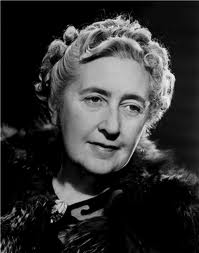
Another day, another week has flown. How incredibly busy we all are these days. I'm getting on well with my new work in progress, 'Seeds of Time' and 'Harvest'. I think another week - all being well - and I'll have my first draft.
Sales on all my paperbacks are doing fab and I have yet to complain about my Amazon downloads this year ~ Yay! for Amazon and Wahoo! to all of you super people out there who keep writing some wonderful reviews. They really do count and when I receive a good one it makes my day. Thank you! Now on to this week's main blog-post. characters -a a subject dear to my heart, especially as I'm a character actress as well as a writer. I love deep characters and I hope you do too.
How well do you create your characters?
A huge amount of fiction by both newbie writers and experienced writers can be full of characters which are so often transparent and paper thin. These characters never seem to really come to life in the story you’re reading. Experienced writers can get away with this as their stories may be a fantastic read anyway and their fans will buy anything they’ve written. Newbie writers do not have that luxury, and sales will suffer.
A good example of an experienced writer is that old-time favourite, Agatha Christie. She gets away with thin-veneered characters because she is a great story-teller. All too often we can write in characters that are a copy of a character which you see time and time again throughout novels. For example we have brainy but absent-minded professors, dastardly evil villains, young blushing virgins, tarts with a heart of gold, soldiers who’re naïve but fearless and that smart talking policeman who has a huge chip on his/her shoulder.
These ‘type’ of people are used time and time again and we need to bring in real people with real interests. Our characters have to show they have interests, enemies and friends. We need to add in little bits about their lives during the present time and incorporate little flashbacks when they were younger – even as children. And it is these little things that add the real flavour to our novels. We need to add passion, desires and needs which are often nothing to do with the story-line at all.
I like to add little quirks about the characters doing things that I can never hope to emulate: be a fantastic horse-rider, acrobat, and sky-diver for example. Our characters have to be alive to complete our stories.
One way of creating great characters is to put yourself in their place and perhaps you’ll even put in one or two things you would never normally be happy to expose to the public. Perhaps you’re a collectomaniac, or you’ve been married six times and almost all of the failed marriages were your fault.
You can add silly things too that you’d hate your mother to know about: your bust is too big/small, you loathe your bottom, you refuse to walk under a ladder because it’s bad luck, you touch a certain stone twelve times as you consider it lucky.
Why not compile a list of things you think you like about yourself and another list in which you hate yourself. Make lists of the times you were wildly happy and another when you felt like ending it all because of the awful, ugly things you did – perhaps involving other people. Write a list of what you feel most passionate and strongly about. This can of course be because you love them or hate them. The list is about what matters to you.
Look through the lists and you should now have enough great material to make a whole novel (or more) which are full of characters with plenty of depth and substance to them.
I don’t mean you to transpose all of the things you’ve written down straight as they are. With more imagination you can change and transform them and thereby creating a whole group of people. It’s easy to create many characters by changing and mixing these traits up. Give them to a character unlike you: maybe a different gender or someone with different interests.
The character has to have some back story too, which can be as near or far away from the story plot of your novel as you like. The important thing is to get some back story in there. Flesh your characters out by using those events which have meaning to you and how they affected you. By mixing up and disguising the events and how you dealt with them still maintains the essentials you need and forms part of your new characters own histories.
The things that matter are often not easy and this includes the things that matter in your fiction writing. By putting yourself into your characters, they become deeper, real and believable. Happy writing and reading!
Faithx



 RSS Feed
RSS Feed
